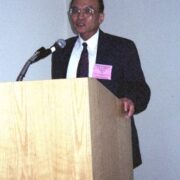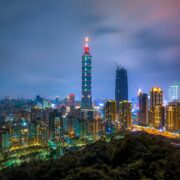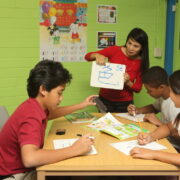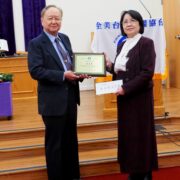一位台美人第二代在非洲的故事
走出溫室,挑戰未知 -Beyond the Comfort Zone
Charlene Chen
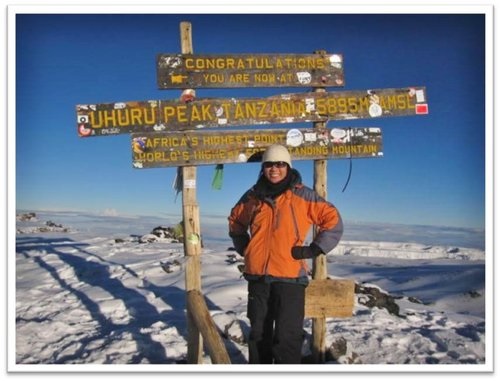

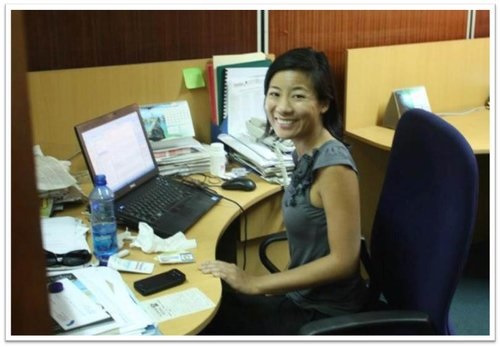 Charlene’s speech at NATWA convention, 2013 http://youtu.be/PCXVphAOlTs
Charlene’s speech at NATWA convention, 2013 http://youtu.be/PCXVphAOlTs
In 1972, my parents Tong Yong Chen and Feng Feng Lee left Taiwan to start a new life in the United States. They, like all of you 1st generation immigrants, left behind their family, friends and homeland in order to provide their yet unborn children with the best personal, academic, and professional opportunities possible. What did you hope your children would grow up to pursue as professions? Most Asian parents hope that their children will become doctors, scientists, lawyers, or some other prestigious profession… I can pretty much guess that none of you (including my very own parents) dreamed that your daughter would ever leave behind the “American Dream” to work in sub-Saharan Africa. I’m honored to speak to you today about how I left my comfort zone to do exactly that.
Believe it or not, I actually started out on a fairly Taiwanese-approved career path. My tech-savvy father instilled in me a love of computers, so I took my first programming class in high school and ended up majoring in Computer Science (and Psychology) at Duke University. I spent my summers interning at an internet startup, Microsoft, and Eli Lilly, the pharmaceutical company most famous for producing Prozac. I then spent 4 years working as a Systems Analyst at Deloitte Consulting, one of the largest professional services firms in the world. It was a very comfortable life once I adjusted to sleeping in a hotel 3 nights a week and flying every Monday and Thursday – bright colleagues, talented managers, working across multiple industries for Fortune 500 companies. Yet, something was missing – I felt like the work I was doing didn’t really help people. So, I started spending a lot of my free time volunteering with non-profit organizations. I organized career development events for Asian American women in high school and college through ASPIRE (Asian Sisters Participating In Reaching Excellence) and started a computer literacy program for Asian immigrants through the Boston Chinatown Neighborhood Center. I became a camp counselor and eventually Program Director at the annual TAF (Taiwanese American Foundation) Summer Conference, which had had a tremendous impact on shaping my Taiwanese American identity as a high schooler. So while designing and implementing call center applications was intellectually challenging, it was the volunteer work that truly gave me personal fulfillment.
As the years passed by, a little voice inside me grew louder and louder – wouldn’t it be amazing if I could make social impact a part of my day job, not just my nights and weekends. So, I started thinking about leaving Deloitte. Although I started an application to the Peace Corps, I decided to get my MBA in order to round-out my education – I was confident in Information Technology, but knew hardly anything about Finance, Accounting, Supply Chain, Marketing, Sales, Human Resources, etc. I entered business school considering essentially 3 different career paths, domestic non-profit management, corporate social responsibility, or business and technology in developing countries. MBA students who are career switchers often use their summer internship to explore new career paths before committing to full-time opportunities. It would be prudent to discover sooner than later whether or not you can cut it as an investment banker on Wall Street, or say, whether or not you could live in Africa.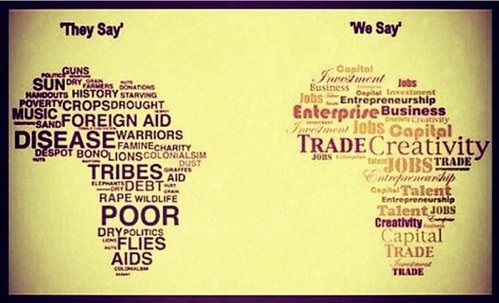
I was lucky enough to travel a lot with my family growing up, but mostly to developed countries in Asia and Europe. My first exposure to poverty was through church missions trips to Juarez, Mexico, the Caribbean island of Trinidad, and a village in rural Guatemala. I had never been to Africa and barely knew anyone who had been. All I knew was that billions of dollars of foreign aid was poured into Africa with seemingly very little to show. I was intrigued by the idea of social entrepreneurship, the idea of building organizations with social missions at their core but operating as businesses, not charities. So, I decided to give Africa a shot. I found a summer internship in Ghana, a country in West Africa. Now, tell me what you think of when you think of Africa. Poverty. Famine. Disease. AIDS. Civil war. Political corruption… I confess that these were the words and images that also came to my mind before working in Africa. But after spending 3 months doing SME (small-to-medium enterprise) development for an internet company in Accra, the capital of Ghana, I started to see the potential and positivity in Africa: Business. Entrepreneurship. Job creation. Investment. Talent. I was incredibly inspired by the business opportunities that I found in Ghana. I not only found the formal sector – banks and even the Ghanaian Stock Exchange, but also met impressive Ghanaian entrepreneurs who had literally built businesses from the ground up.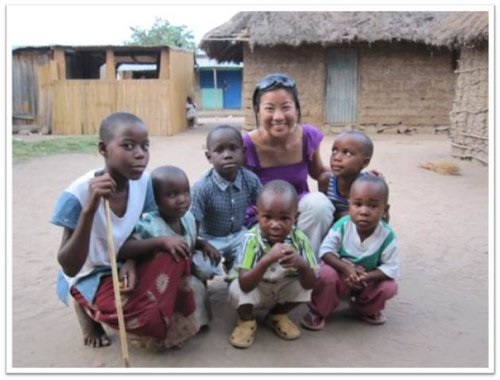
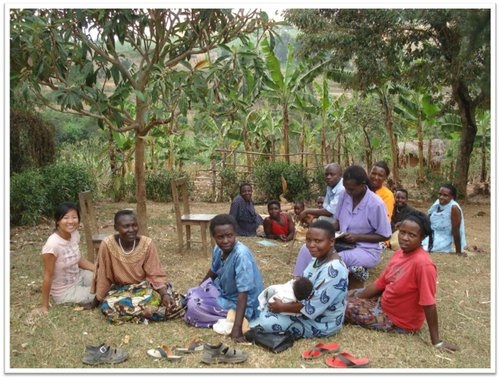
I was so inspired that I decided to move back to Africa after graduating from Berkeley. I first entered development through technology. Through Berkeley, I spent 6 weeks working in rural Uganda researching how small-scale farmers access information using technology as low-tech as radios or as high-tech as mobile phones. Then I spent 5 months working in Tanzania managing a project to allow cotton farmers to receive market prices and ask questions using their cell phones.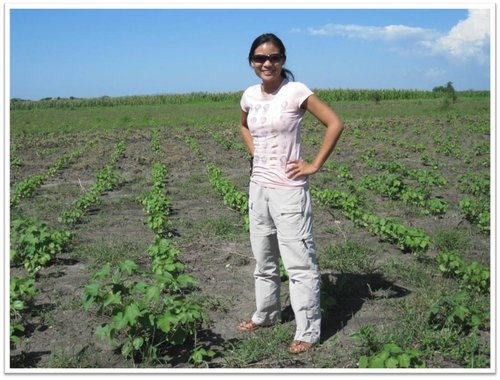
After turning down job offers in Jordan, Nigeria, and South Africa, I finally decided to accept a job in Kenya, at KickStart International, a social enterprise whose mission is to lift millions of people out of poverty through income-generating technologies. KickStart was one of the first non-profit organizations to use a market-based approach, meaning that we sell our products instead of giving them away. We have sold human-powered irrigation pumps to over 215,000 smallscale farmers, who on average own 1-2 acres of land and make 2-3 dollars per day. The theory of change is that when a farmer uses our “MoneyMaker” irrigation pumps to irrigate during the seasons of the year when it is not raining, he or she can grow produce year-round, selling tomatoes, cabbages, etc. when demand is high but supply is low. On average, a farmer who was making $100 per year can increase his/her income by $750 in just one year.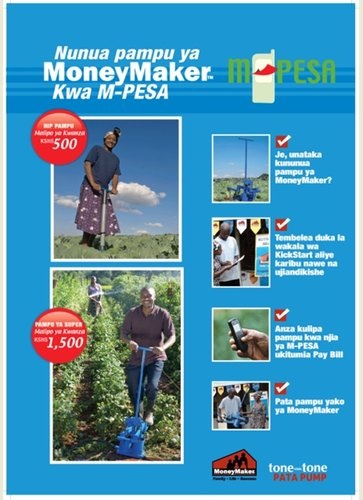
Watch: http://www.youtube.com/watch?v=4MI2dJAtfQQ
My work at KickStart has been both incredibly challenging, but also rewarding. In my first role as a Product Manager, I designed a financial service that allows farmers to purchase MoneyMaker pumps using their cell phones. One thing you may not know is that many developing countries have “leapfrogged” in terms of technology. So for example, very few Kenyans have landlines, much less laptops, but over 70% own at least one mobile phone. They not only use their phones to call and send text messages, but they also use their phones to send and receive money using a service called M-PESA (Pesa is the Swahili word for money). Some of the challenges I have faced are that our target customers live on farms in rural areas, so it can take a lot of time and effort to visit them, much less sell them our products. I have also had to learn Swahili, the national language, in order to better communicate with farmers who speak little, if any, English.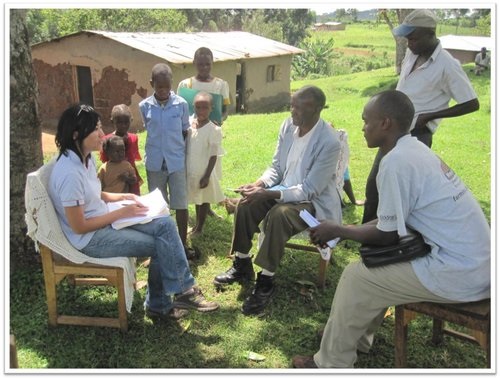
A little over a year ago, I was promoted to become the Head of Marketing and Innovation. I currently manage a team of 4 Kenyans to run KickStart’s new product development/global marketing and branding, and sales strategy. This has been quite the stretch role beyond my comfort zone because prior to KickStart, I had absolutely zero experience in any of these subjects. I am thankful that KickStart saw potential in me and gave me the opportunity to learn and grow. It hasn’t been easy, but I have learned so much through trial and error as well as through mentorship from my fellow Senior Managers, nearly all of whom are Kenyan. But personally, the hardest thing about working in Africa has been living so far from home – I especially miss my parents, my 2 sisters, and my 6 nephews and nieces.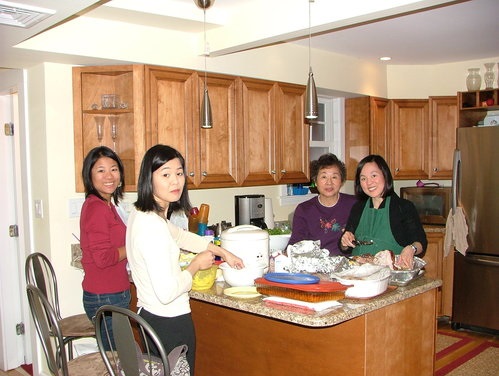
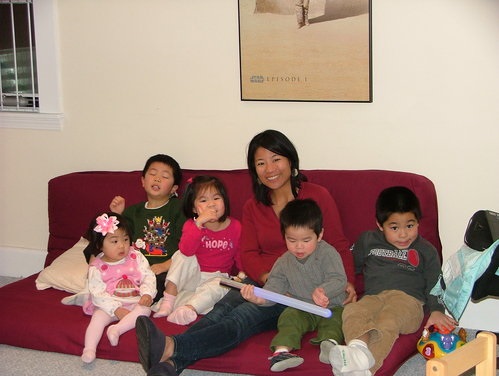
So, this is the point in my speech when I thought I would exclaim, “But good news! You don’t have to move to Africa to go beyond your comfort zone! But then I realized that you already have in so many ways. By emigrating from Taiwan to North America, you left behind your comfort zone – your friends, families, and homes. I think about how my father’s medical school books were in English. How my parents immigrated to Birmingham, Alabama in 1971, just after the civil rights movement, and probably faced worse discrimination than I do in Africa, where even small children make “ching-chong” noises at me. I think about how each of you must have struggled to find that delicate balance of assimilating yourselves and your children into American culture while at the same time preserving and passing on your Taiwanese heritage. So, first, we should celebrate this great leap of faith. But I encourage you to continue exploring beyond your comfort zone every day. Here are 5 of the ways in which I have gone beyond my comfort zone, which I hope will encourage you to do the same, in your own way:
1) Travel off the beaten path – I have explored the landscape, food, and culture of over 40 countries across 6 continents. Some adventures have included scuba diving in the Great Barrier Reef off the coast of Australia, exploring the Great Pyramids of Egypt, climbing around the ancient city of Machu Pichu in Peru, and swimming on the edge of Victoria Falls in Zambia. Whether I’ve been tango dancing in Argentina, floating in the Dead Sea in Jordan, or tracking mountain gorillas in Uganda, each trip has enriched my life with unique and unforgettable experiences. It can be frustrating to not know where you’re going, and to struggle to order food, much less figure out what you’re actually eating, but there are countless travel guides that can help you navigate, whether you’re backpacking on a budget or booking an organized tour. And it’s never too late! I’ve been so proud of my parents for expanding their travel from countries in Asia and Europe to less developed countries – in recent years, they have also been to Machu Picchu in Peru, explored India, and spent over a month in Kenya and Tanzania!
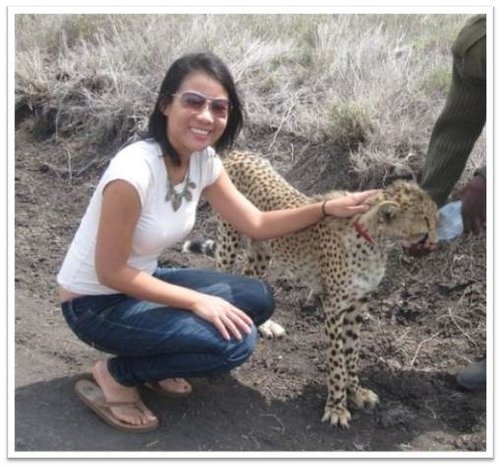
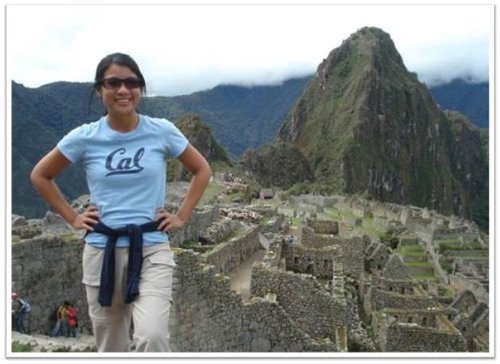
2) Ride animals – I know this is an odd one. You might feel a loss of control (I know I certainly did when I competed in a 10 kilometer camel race in Northern Kenya and held on to an ostrich for dear life), but it truly does empower you to see and experience the world around you from a completely new vantage point. Last month, I raced giraffes on horseback, which was literally breathtaking.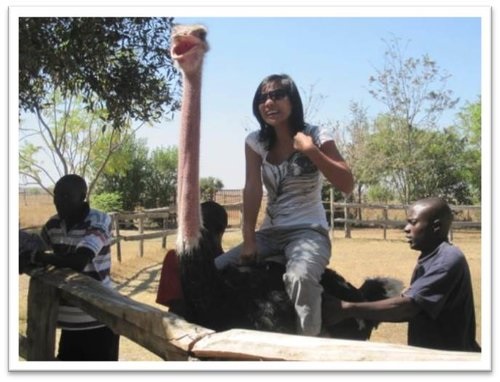
3) Explore the deep seas – As a Pisces (one of the water signs of the Zodiac), I love being on water, in water, and under water. Here’s a photo of me swimming with 30-foot whale sharks off the coast of Tanzania. Water sports such as kayaking, dragon boat racing, white water rafting, kitesurfing, and scuba diving have enabled me to explore the 70% of our world that isn’t land. I highly encourage you to dip a toe in the water or just dive right in – you could try something as low-key as snorkeling or intense as cage-diving with sharks. (I haven’t done this but would love to someday).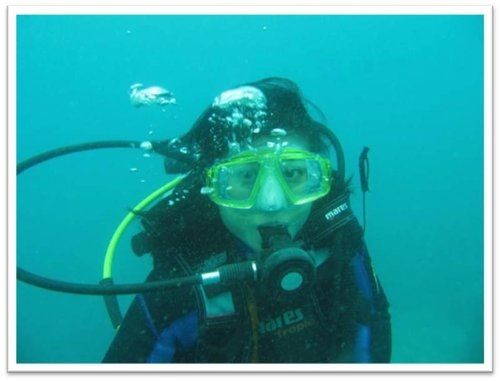
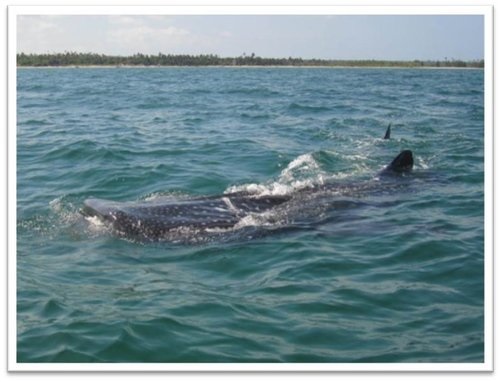
4) Commit to a physical challenge – about 5 years ago, I decided to do at least one major physical challenge each year:
- 2008 – Ran the Nike Women’s Half-Marathon in San Francisco
- 2009 – Climbed Mt. Kilimanjaro, the highest peak in Africa (19,341 feet)
- 2010 – Climbed Mt. Kenya, the second highest peak in Africa (16,355 feet)
- 2011 – Ran the Kenya Airways Masai Mara Half-Marathon
- 2012 – Competed in 2 sprint triathlons (750m swim + 20km bike + 5km run) in Kenya
- 2013 – To be determined!
Believe it or not, I am the same girl that dreaded running the mile in P.E. class, the same girl who played soccer and field hockey, but never made the Varsity team. If you told me that one day I would be a (very amateur) triathlete, I would have laughed at you. All it takes is time, dedication, and discipline. And a physical challenge should of course be appropriate to your physical ability. Might I suggest committing to walking every day or playing golf twice a month?
5) Reach out to the community beyond your community – Ordinary people do extraordinary things. I’m inspired by my mother, who has tirelessly raised funds to support hundreds of children who were orphaned as a result of the “921” earthquake in Taiwan in 1999. I’m inspired by my sister Grace, who is a full-time physician raising 4 children under the age of 10, but finds the time and energy to do medical missions in Haiti. However, it goes without saying that you don’t have to work in a developing country to serve those in greater need. There are people to serve right here at home. I have always lived by the Gandhi adage that “To whom much has been given, much is expected.”
So, some of you might be wondering what drives me to explore the world and constantly seek adventure? I believe that life is a precious gift from your family and from God, a gift that should never be taken for granted. As long as I have legs to walk and eyes to see, and even when those fail, I will continue to live each day to its fullest, and I encourage you to do the same. Here are some of the things that I would like to do in my lifetime:
- Learn Chinese
- Hike the Pilgrimage of Santiago (30-day trek in Northern Spain)
- Climb to the Base Camp of Mt. Everest
- Explore Antarctica
- Learn to fly a small plane
- Publish a book
- Become a doctor (Sorry Dad, I’m only kidding!)
I’d like each of you to take minute and write down at least one thing that you would like to do in your lifetime, even if it’s beyond your comfort zone. I would love to hear what you came up with. Now, as parting words, I encourage you not only to live life, but to live your life ALIVE!
If you would like to join Charlene’s good deeds, this is the site
http://fundly.com/charlene-chen-families4families
KickStart’s Moneymaker pump http://www.youtube.com/watch?v=4MI2dJAtfQQ
Charlene Chen’s speech recording in the 2013 annual convention of North America Taiwanese Women Association in Los Angeles
http://www.youtube.com/watch?v=jbEub_97lMM&feature=youtu.be
KickStart received award from State Department. http://www.kickstart.org/news/2012/03/secretary-of-state-hillary-cli.php<!
源自 陳東榮

